A year has passed since the founder of the Wagner Group, Yevgeny Prigozhin, initiated an armed mutiny against the Russian military leadership.
On this occasion, Russian historian Roman Shumov wrote an article looking back at the incident which he called "one of the most mysterious events in modern Russian history".
Nguoi Dua Tin would like to translate Mr. Shumov's article posted on RT (Russia).
On June 23, 2023, one of the most mysterious events in modern Russian history began. Units of the Wagner Private Military Corporation (PMC) – at the time a highly combat-ready but also historically unusual component of the Russian Armed Forces – withdrew from the battlefield in Ukraine.
Main character
It is impossible to tell the story of the Wagner Mutiny without knowing the story of the people behind the creation of the PMC. The main character is Yevgeny Prigozhin, a St. Petersburg businessman who rose from humble beginnings to become a wealthy tycoon.
Mr. Prigozhin had a turbulent youth, starting his business in the early 1990s after the collapse of the Soviet Union. Quickly rising from a sausage stand, the astute businessman moved on to opening restaurants in St. Petersburg to suit every taste and budget.
In the late 1990s, Mr. Prigozhin ran a chain of restaurants and a catering company, and was famous for founding the city on the Neva River.
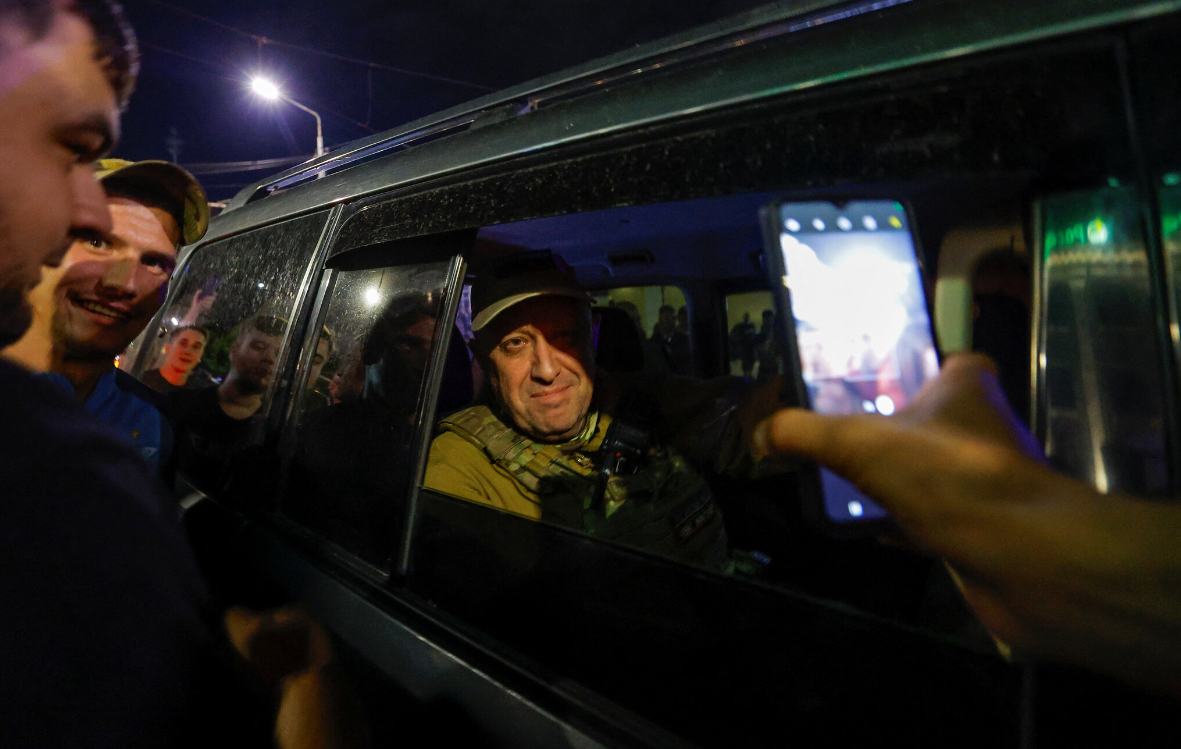
Wagner boss Yevgeny Prigozhin leaves the Southern Military District headquarters in Rostov-on-Don and heads to neighboring Belarus, June 24, 2023. Photo: The Guardian
The businessman got involved in organizing catering for schools and then in the army, construction and other projects.
Since 2010, he has been increasingly involved in politics . In 2013, he created a media network that included online resources as well as a large social media conglomerate. In 2014, he was asked to set up a private military company (PMC).
Mr. Prigozhin was involved in organizational matters. The PMC received orders from official bodies and was funded by them. It was commanded by Dmitry Utkin, a veteran of special military intelligence units.
"Ghost Army"
One of Mr. Utkin's aliases was Wagner, so when information about the formation of the unit leaked to the media, it was called the Wagner Group or Wagner PMC. Wagner is also informally known as the “Orchestra” and its fighters as the “Musicians.”
Initially, Wagner members were recruited from retired Russian military personnel and participants in the war in Donbass. Fighters were attracted by high salaries and an informal management style: no training exercises, no multi-year contracts.
Wagner's first operation was to attack the airport in the city of Lugansk, which was controlled by the Ukrainian Army. Mr. Prigozhin, a non-military man, suddenly became an exceptionally well-suited person to lead this PMC. Energetic, cunning and extremely rude, he had little formal education, but quickly learned everything there was to know.
Officially, there is no Wagner, and until 2022, even Prigozhin's own media wrote about the PMC as a ghost, a myth. So, in the early years of the group's activity, the public could not even know for sure whether it actually existed. Several activities around the world were attributed to Wagner with varying degrees of certainty.
Wagner’s operations extend from Syria to far-flung Africa. Prigozhin’s fighters have fought alongside the Syrian Army to crush IS terrorists in several cities. Wagner in Syria is a moderate force: a few rifle companies, an armored vehicle group, a few artillery batteries, a UAV unit – a total of about 1,000 fighters.
New situation
2017 can be considered the pinnacle of Wagner’s glory. But it was also the year when the conflict between Mr. Prigozhin and the then Russian Defense Minister Sergey Shoigu began. The businessman received material resources from the Russian Defense Ministry, but did not want to be controlled in terms of human resources.
Mr Prigozhin blamed Mr Shoigu for the “official” military’s failure to come to Wagner’s aid in critical situations, leading to heavy losses for Wagner. Mr Shoigu, in turn, resented Mr Prigozhin’s autonomy. Moreover, as the peak of the Syrian campaign passed, Mr Prigozhin began looking for something to do outside of Moscow’s control.
So Wagner went to the Central African Republic and several other countries on the “dark continent”, as usual helping the local government regain control over large areas from rebel groups.

Wagner soldiers in Artyomovsk/Bakhmut, Donetsk region, during Russia's special military operation in Ukraine. Photo: TASS
In 2022, Wagner finds itself in a new situation when it participates in Russia’s “special military operation” in Ukraine. If in Syria Wagner was just a reinforced battalion, in the Central African Republic it was a brigade-sized formation, and most of the soldiers and officers were veterans of the Russian Armed Forces and Special Forces. In Ukraine in 2022, Wagner experienced a period of explosive growth.
New Front
Simultaneously with Wagner's activities in Ukraine, Mr. Prigozhin also stepped into the light for the first time and actively talked to the press about Wagner.
Wagner's first major operation of 2022 was an attack on the town of Popasnaya near Lugansk. In October of that year, Wagner began a months-long battle to capture the city of Artyomovsk (known as Bakhmut in Ukraine), which was heavily defended by Kiev forces.
As the fighting began, the situation for the Russians on this front became worse than ever, while the Ukrainians had the advantage in numbers and took the initiative. In the fall, the Russians retreated from Kherson and lost the eastern part of the Kharkov region that they had controlled at the beginning of the war.
However, the Russian army has a huge advantage in firepower. Therefore, the Wagner PMC is used for an extremely difficult task: to attract and hold large numbers of Ukrainian troops in a battle of attrition and stalling.
This is the mission that Wagner will carry out until May 2023, when Artyomovsk/Bakhmut will fall under Russian control.
In total, according to Prigozhin himself, of the 50,000 Wagner soldiers, about 20,000 were killed during the period of the group's participation in the conflict in Ukraine. The vast majority were former prisoners, and Artyomovsk/Bakhmut became Wagner's greatest battle.
It was an extremely brutal and violent encounter, in which both sides suffered the heaviest casualties. But from the perspective of both Mr Prigozhin and the Russian military leadership, Wagner’s mission had worked: the Ukrainian army had endured a battle of attrition.
Smoldering
The Artyomovsk/Bakhmut battle was a victory for Wagner and Prigozhin personally. But the outcome also exposed the bitter rivalry between the PMC chief and the Russian defense minister at the time. Prigozhin not only brought the conflict into the public eye, but also openly opposed Shoigu.
For his part, the Russian defense minister tried to make Wagner PMC more manageable. Mr. Shoigu argued that Wagner should not have special status or special rights. Ultimately, the minister ordered the PMC volunteers to sign contracts with the Russian defense ministry, not Mr. Prigozhin’s company. This may have deprived Mr. Prigozhin of a key tool.
In addition, the Russian Defense Ministry also stopped doing business with Mr. Prigozhin's organizations. This means huge, irreparable damage to the businessman's business activities.
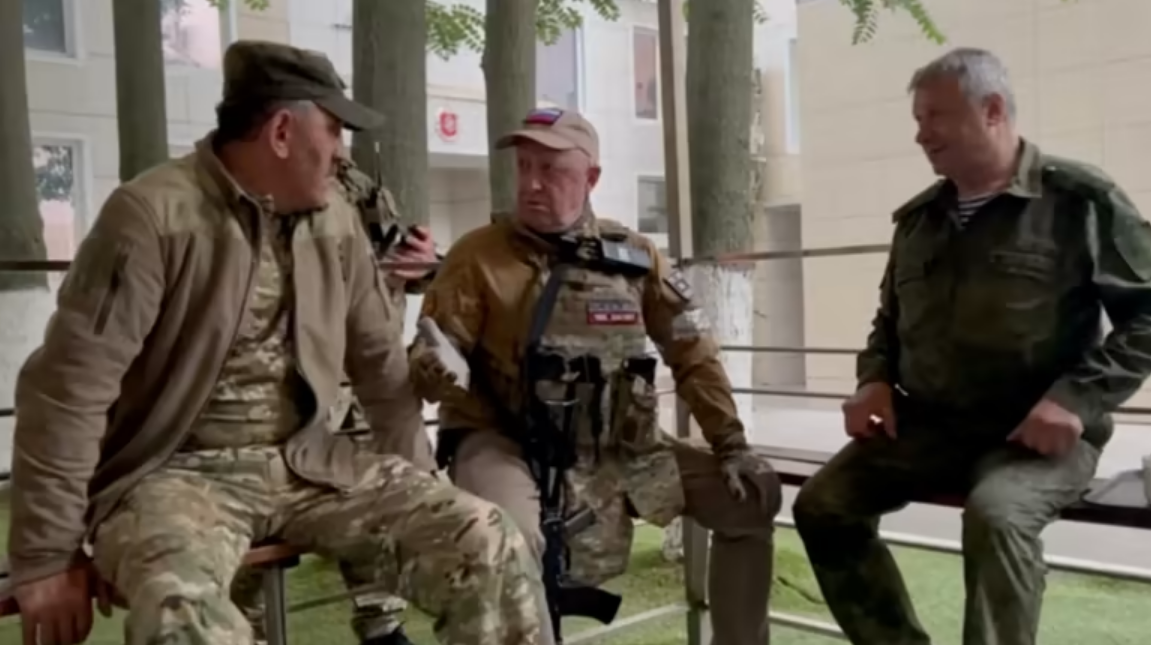
Prigozhin meets with Russian Deputy Defense Minister Yunus-Bek Yevkurov at the headquarters of the Southern Military District of the Russian armed forces in Rostov-on-Don, Russia, June 24, 2023. Photo: Nikkei Asia
After his victory in Artyomovsk/Bakhmut, Prigozhin began to openly overestimate his own importance. He also generally had a deteriorating relationship with much of the local establishment.
What he did not realize was that he had lost many potential allies in the upper class. At the same time, many officers and generals viewed Wagner not with hostility but with envy.
Wagner has entered a phase where his fate is not described by a political scientist but by a playwright of the old school, Schiller or Shakespeare. Like Coriolanus and Wallenstein, or Macbeth, Prigozhin is rushing towards the climax of his own play.
Make waves
The details of Mr Prigozhin’s decision to embark on his “adventure” last summer are murky. Only a very small circle of people closest to him knew what he was up to. This list, of course, included Mr Utkin and the main commanders of the units.
After the Artyomovsk battle, Wagner’s troops were withdrawn to the rear. On the evening of June 23 last year, Prigozhin announced that the Wagner camp had been shelled from the air. The PMC convoy, consisting of tanks, light armored vehicles, and infantry vehicles, set off and moved toward Rostov-on-Don, a major city in southern Russia and the base of the Southern Military District, which is primarily responsible for the military operation in Ukraine.
Wagner soldiers disarmed several military posts, but did not unleash any further violence at that stage. The Southern Military District headquarters was taken without resistance. There Prigozhin met with Russian Deputy Defense Minister Yunus-Bek Yevkurov, an influential officer in the military.
Mr. Yevkurov was not involved in Mr. Prigozhin's mutiny. The exact content of the conversation between Mr. Prigozhin and Mr. Yevkurov, as well as General Vladimir Alekseev, the representative of military intelligence, remains unknown, but it itself indicates Mr. Prigozhin's desire to maintain contact with the authorities and his willingness to talk, even if only from the point of view of violence.
Mr Prigozhin's actions have provoked mixed reactions. On the one hand, the work of the Russian Defense Ministry has been widely criticized. On the other hand, a mutiny in the heat of war has been seen by many as unacceptable.
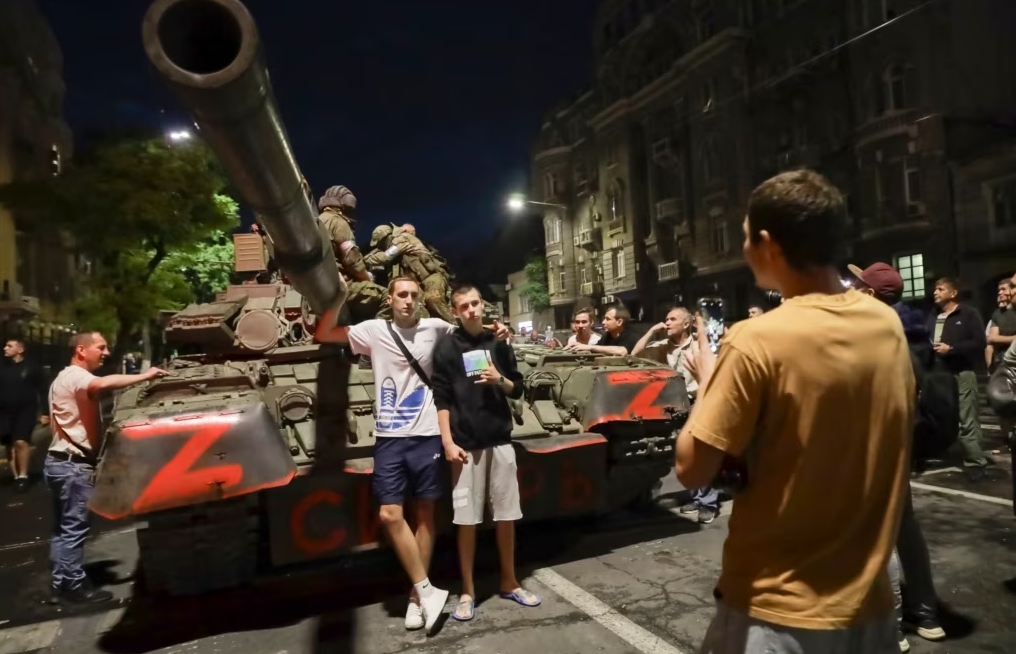
People pose for photos as members of the Wagner group sit on a tank in Rostov-on-Don, Russia, June 24, 2023. Photo: RFE/RL
Late on June 23, 2023, a Wagner column headed toward Moscow. Some PMC forces remained in Rostov. What did Prigozhin want by sending his men to the capital? No one knows for sure, but it seems he hoped to drive out his enemies. Perhaps it was also to give Wagner a special official status.
But it seems that the Wagners miscalculated. Moreover, blood was shed at the very beginning of the march to Moscow. On the way, they shot down a military helicopter. Then they fired several shots at Russian helicopters and planes that they believed were threatening the convoy or were actually trying to interfere with it. The destruction of military helicopters and the deaths of Russian officers crossed the “red line”.
The end of the game
Meanwhile, Wagner's convoy was moving towards Moscow. Units loyal to the government took up positions on the approach to the capital, but everyone hoped that this would not mean direct combat. Many remembered Wagner from Donbass and Syria, and among those preparing to defend Moscow there were enough old friends and colleagues. After all, the core of the "Orchestra" was veterans of the Russian army.
The Wagner soldiers involved in the incident themselves were dismayed by President Putin's speech and condemnation of their actions. Moreover, it is completely unclear what the purpose of the convoy heading to Moscow was.
There were only a few thousand of them, and some of them began to retreat, lagging behind the rest for good reason. But even if Wagner's soldiers entered Moscow, what would they do there? It was a vast metropolis with important facilities scattered everywhere.
Two thousand people would simply get lost in it, unable to even control the key points. And of course, even the entire PMC cannot control all of Russia. It simply cannot.
Meanwhile, Prigozhin and Utkin, the commander of the convoy, received clear signals that the authorities would not destroy Wagner if they stopped what they were doing.
At the same time, Mr. Prigozhin's headquarters in St. Petersburg were searched. His staff were arrested. Access to media under Mr. Prigozhin's control was blocked.
On the evening of June 24, 2023, Mr. Prigozhin compromised. Belarusian President Alexander Lukashenko acted as a mediator in the negotiations, but there was only vague speculation about the full composition of the dialogue participants and the specific conditions. In any case, Mr. Prigozhin canceled his “march” to Moscow.
A few days later, Mr Prigozhin and the Wagner commanders involved met with President Putin. A period of limbo followed. Rumours about what would happen next varied widely.
Finally, on August 23, 2023, exactly two months after the failed coup, Mr. Prigozhin’s private plane crashed north of Moscow during a flight from the capital to St. Petersburg. Among the 10 people killed, in addition to the crew and bodyguards, were Mr. Utkin, Valery ‘Rover’ Chekalov (PMC’s logistics manager) – and Mr. Prigozhin. The official version of the accident was the careless handling of a hand grenade on board.
The Wagner PMC no longer exists. Its fighters and commanders serve in other units or have left the armed forces.
Several thousand Wagner soldiers were moved to a camp in Belarus after the mutiny, according to the AP. Soon after Prigozhin’s death, most Wagner soldiers left the country, signing contracts with the Russian military to redeploy to Africa or return to fight in Ukraine. Only a few remained in Belarus to train the local army.
The Russian government has established the Afrika Korps, a successor to Wagner, using the unit to expand military cooperation with countries on the “black continent”. Moscow has emerged as the security partner of choice for many African governments, replacing traditional allies such as France and the United States.
Parts of Wagner and other private security companies continue to operate in Ukraine under the control of the Russian Ministry of Defense and the Russian National Guard.
Minh Duc (According to RT, AP)
Source: https://www.nguoiduatin.vn/nhin-lai-mot-nam-binh-bien-wagner-va-nghich-ly-prigozhin-a669746.html







![[Photo] General Secretary To Lam receives the Director of the Academy of Public Administration and National Economy under the President of the Russian Federation](/_next/image?url=https%3A%2F%2Fvphoto.vietnam.vn%2Fthumb%2F1200x675%2Fvietnam%2Fresource%2FIMAGE%2F2025%2F12%2F08%2F1765200203892_a1-bnd-0933-4198-jpg.webp&w=3840&q=75)
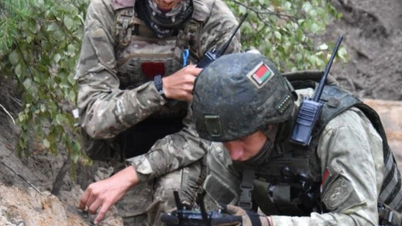



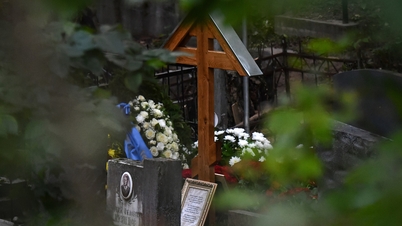



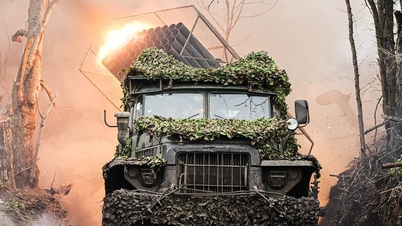

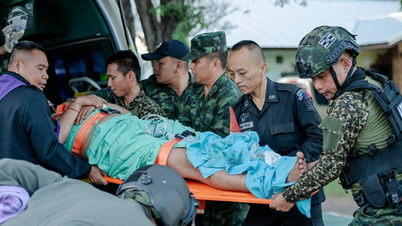
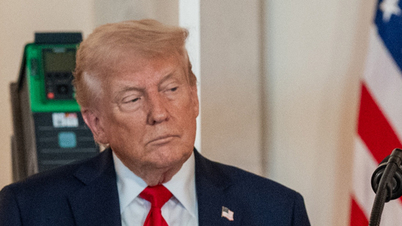
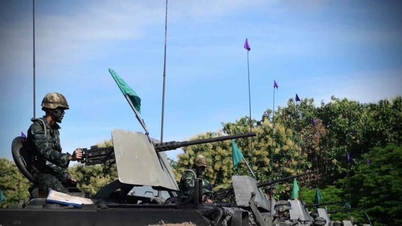
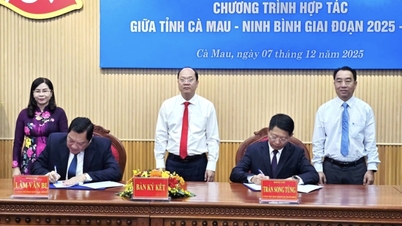

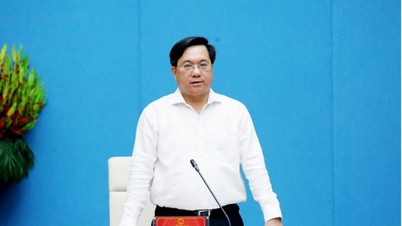




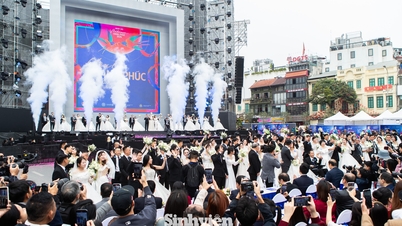
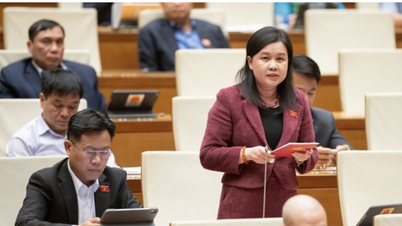


































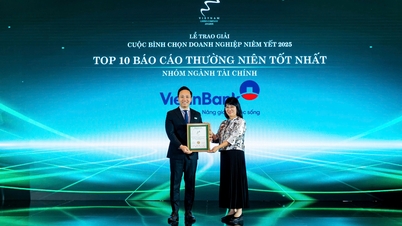








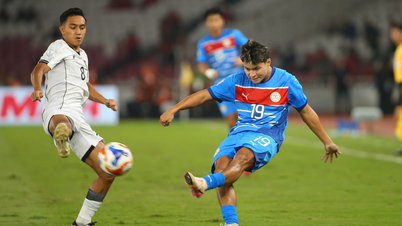
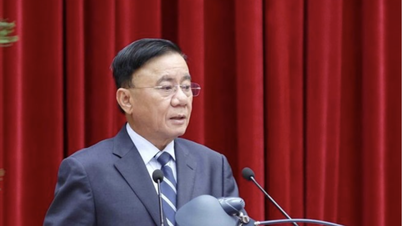


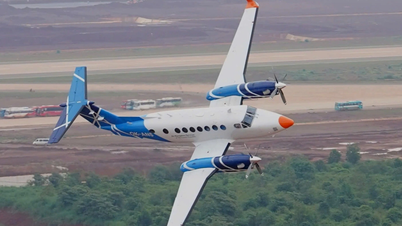

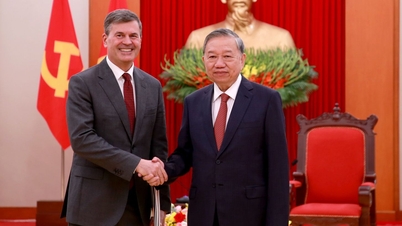














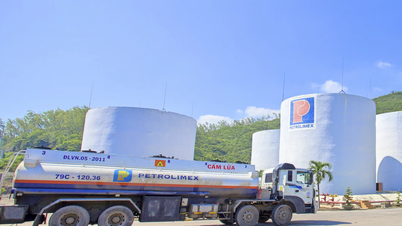



















Comment (0)